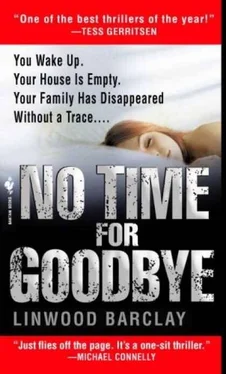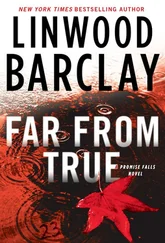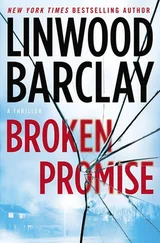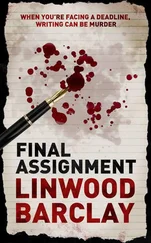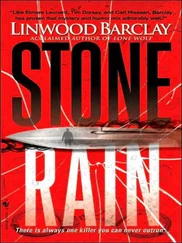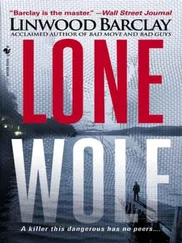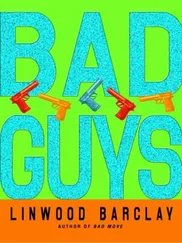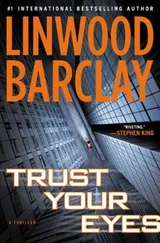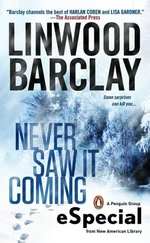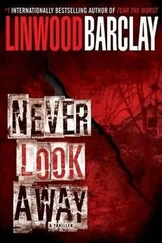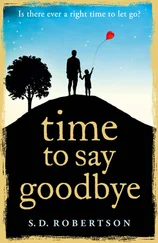For a while, I didn’t quite know what to do with myself, besides worry. I tidied up the kitchen, picked up around the house, attempted, without success, to attach Grace’s telescope more securely to its tripod-like stand.
I walked out of the kitchen and my eyes landed on the two shoeboxes on the coffee table that Abagnall had returned to us the day before. I picked them up, took them back into the kitchen, and set them on the table.
I started taking things out one at a time. Much the way Abagnall must have, I suspected.
When Cynthia had cleared things out of her house as a teenager, she’d basically dumped the contents of drawers into these boxes, including those from the bedside tables of her parents. Like most small drawers, they became a repository for things important and not, spare change, keys you no longer knew the use for, receipts, coupons, newspaper clippings, buttons, old pens.
Clayton Bigge wasn’t much of a sentimentalist, but he saved the odd thing, like newspaper clippings. There was that one clipping of the basketball team Todd was part of, for example. But if it had anything to do with fishing, it was even more likely Clayton would hang on to it. Cynthia had told me that he read through the newspapers’ sports sections for fishing tournament news, through the travel sections for stories about out-of-the-way lakes where there were so many fish, they practically jumped into the boat.
In the box, there were probably half a dozen such clippings that Cynthia must have dug out of Clayton’s bedside table years ago before the household furniture, and the house itself, were disposed of and sold off, and I wondered when she would realize that there wasn’t much value in saving them any longer. I unfolded each yellowed clipping, careful not to tear it, to make sure what it was.
There was something about one of them that caught my eye.
It had been saved from the pages of the Hartford Courant . A piece about fly-fishing on the Housatonic River. Whoever had cut the clipping from the paper-Clayton, presumably-had been meticulous about it, taking the scissors carefully down the gutters between the first column of this story and the last of one that had been discarded. The story had been placed above some unseen ads, or other stories, that had been stacked like steps in the bottom left corner.
That’s why it seemed odd to me that a news story, unrelated to fly-fishing but tucked into the bottom right leg of the story, remained.
It was only a couple of inches long, this story. It said:
Police still have no leads in the hit-and-run death of Connie Gormley, 27, of Sharon, whose body was found dumped into the ditch alongside U.S. 7 Saturday morning. Investigators believe Gormley, a single woman who worked at a Dunkin’ Donuts in Torrington, was walking alongside the highway near the Cornwall Bridge when she was struck by a southbound car late Friday night. Police say it appears that Gormley’s body was moved into the ditch after it had been struck by the car.
Police theorize that the driver of the car may have moved the body off the road and into the ditch, presumably so that she would not be noticed until sometime later.
Why, I wondered, had everything else around that article been so neatly trimmed away, but this story left intact?
The date on the top of the newspaper page was October 15, 1982.
I was pondering that when I heard a knock at the door. I set the clipping to one side, got up from my chair, and went to answer it.
Keisha Ceylon. The psychic. That woman the TV show had set us up with, who had inexplicably lost her ability to pick up supernatural vibrations once she realized the producers weren’t cutting her a fat check.
“Mr. Archer?” she said. She was still dressed against type, in a professional-looking business suit, no kerchief, no huge hoop earrings.
I nodded, wary.
“I’m Keisha Ceylon? We met at the TV station?”
“I remember,” I said.
“First of all, I’d like to apologize for what transpired there. They had promised to pay me for my trouble, and that did lead to a disagreement, but it should never have happened in front of your wife, in front of Mrs. Archer.”
I said nothing.
“Anyway,” she said, filling the gap, evidently not expecting to have to carry both sides of the conversation, “the fact remains that I did have some things that I wanted to share with you and your wife that might be helpful with regard to her missing family.”
I still wasn’t saying anything.
“May I come in?” she asked.
I wanted to close the door in her face, but then I thought about what Cynthia had said before we’d gone to see her the first time, how you have to be willing to look like a fool if there’s a chance, even a one-in-a-million chance, that somebody might have something useful to tell you.
Of course, we’d already been burned by Keisha Ceylon, but the fact that she was willing to face us a second time made me wonder whether I should hear her out.
So, after hesitating a moment, I opened the door wide to admit her. I steered her toward the living room couch where Abagnall had sat hours earlier. I plunked down across from her and crossed my legs.
“I can certainly understand that you might be skeptical,” she said. “But there are a great many mysterious forces around us all the time, and only a few of us are able to harness them.”
“Uh-huh,” I said.
“When I come into possession of information that would be important to a person going through troublesome times, I feel an obligation to share that knowledge. It’s the only responsible thing to do when you are blessed with such a gift.”
“Of course.”
“The financial reward is secondary.”
“I can well imagine.” Even though I was almost well intentioned when I allowed Keisha Ceylon into the house, I was already beginning to think I’d made a mistake.
“I can tell you are mocking me, but I do see things.”
Shouldn’t she have said, “I see dead people”? Wasn’t that the line?
“And I am prepared to share these things with you and your wife if you like,” she said. “I would ask, however, that you consider some sort of compensation for me. Seeing as how the television network was unwilling to make that sort of commitment on your behalf.”
“Ahhh,” I said. “What sort of compensation did you have in mind?”
Ceylon’s eyebrows shot up, as though she’d given no consideration to any actual amount before knocking on our door. “Well, you’ve put me on the spot,” she said. “I was thinking perhaps in the area of a thousand dollars. That was what I had understood the TV show would be paying me before they reneged.”
“I see,” I said. “Perhaps if you were able to give me a hint of what this information is first, then I’d be able to decide whether it was worth a thousand dollars to get more.”
Ceylon nodded. “That seems reasonable,” she said. “Just give me a moment.” She sat back against the cushions, raised her head up, and closed her eyes. For about thirty seconds she didn’t move, didn’t make a sound. Falling into some sort of trance, it looked like, getting ready to hook up with the spirit world.
Then: “I see a house.”
“A house,” I said. Now we were getting somewhere.
“On a street, with children playing, and there are lots of trees, and I see an old lady walking past this house, and an old man, and there’s a man walking along with them, although he’s not as old. He could be their son. I believe he could be Todd…I’m trying to get a good look at the house, to focus in on it…”
“This house,” I said, leaning closer. “Is it a pale yellow house?”
Ceylon seemed to close her eyes more tightly. “Yes, yes it is.”
Читать дальше
